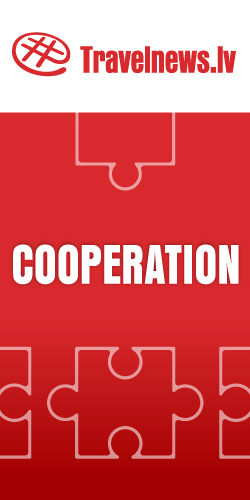Author: Evija Ansonska
Source: Evija Ansonska
Open letter of Latvian tourism and hospitaly industry to European Commission:
To: Mr. Valdis Dombrovskis, Executive Vice-president Of the European Commission
Reklāma
Mr. Andris Kužnieks, Acting Head of the European Commission Representation in Latvia
Copy: Directorate-General for Employment, Social Affairs and Inclusion (DG EMPL)
Directorate-General for Regional and Urban Policy (DG REGIO)
18 June 2020, Riga, Latvia
Open Letter
On behalf of the Latvian tourism and hospitality industry, we would like to draw the attention of the European Commission (EC) to the dramatic situation in the hospitality sector in Latvia and the failure of the national government to provide viable solutions.
We highly appreciate the involvement of EC in helping the member states to overcome the economic effects of the COVID-19 pandemic. Many countries have followed EC recommendations to support small and medium enterprises, and boost the economic sectors most severely affected by the crisis. In Latvia, the hospitality industry is left to struggle on its own, without substantial support from the government. As of today, there are no indications that the situation would be improving.
The current crisis has left the Latvian hospitality industry in a state far worse than that following the 2009 global financial crisis. The lockdown and travel restrictions have paralysed the sector, which accounts for 5 per cent of the national GDP and employs over 30 000 people. The economic activity in this industry has dropped by 50 to 100 per cent, depending on a segment. Without government support, many enterprises may soon find themselves out of business, thus further increasing the unemployment level and worsening the economic situation.
In the beginning of the COVID-19 crisis, we learned that the government of Latvia plans to allocate 4 billion euros to minimise the negative effects of the lockdown on various economic sectors. Additionally, 2.9 billion euros in grants will be available to Latvia through EU economic recovery fund. However, no support measures for reviving the hospitality sector have been included in the government’s economic support package despite a number of practical proposals offered to the government by the industry itself.
The aftertaste of the COVID-19 crisis is even bitterer because of the government’s previously unfulfilled promises to the industry. In 2006, the EC recommended the member states to apply a reduced Value Added Tax (VAT) rate to hospitality and tourism services. Two years ago, an agreement between the industry and the government was reached – a reduced VAT rate in exchange for an industry’s collective agreement. We have fulfilled our part of the deal, but not the government.
During the COVID-19 crisis, many EU countries applied reduced VAT rates to their hospitality sectors and introduced other significant support measures. We remind that any activity in tourism, hospitality and event sectors was restricted or banned as soon as the government declared the state of emergency on 12 March 2020. By failing to help the companies that operate in this sector the Government of Latvia is not only ignoring EC recommendations, but also reducing the country’s international competitiveness in tourism.
We are aware that this is the issue of national responsibility. However, if there are any instruments at the disposal of EC that would foster solving this issue, the hospitality industry of Latvia will highly appreciate all available help.
Sincerely,
Latvian Association of Hotels and Restaurants
Latvian Association of Restaurants
Rural tourism association Lauku ceļotājs
Association of Latvian Travel Agents and Operators
Association of Event Organisers
To publish this article please contact BalticTravelnews.eu editorial board








